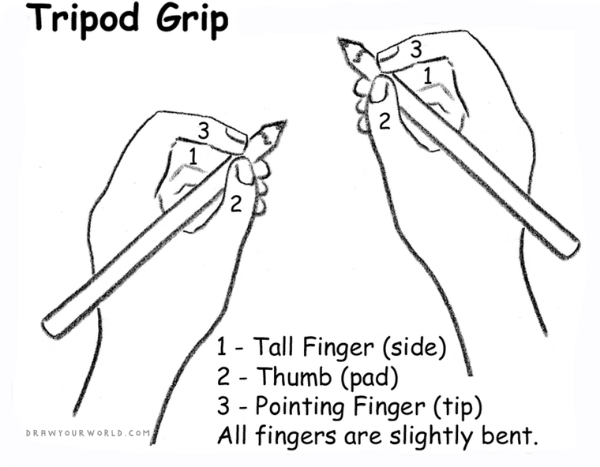Admissions Form click here
School Calendar 2025/2026
click image to view calendar
CLOONTUSKERT NATIONAL SCHOOL
If you have any concerns about the welfare of children you can come and speak to
The Designated Liaison Person
(DLP)
Therese Concannon
Or if DLP is unavailable:
The Deputy Designated Liaison Person
(Deputy DLP)
Lorraine Collins

Admissions Notice - Click here
Before Your Child Starts
You should ensure that she/he is as independent as possible - physically, emotionally and socially. If she/he can look after himself/herself in these areas she/he will feel secure and confident and settle in readily. It would help greatly if she/he is able to
Button and unbutton her/his coat and hang it up.
Use the toilet without help.
Also encourage personal hygiene and cleanliness. Your child should know to flush the toilet and wash her/his hands, without having to be asked.
Use a tissue when necessary; place the used tissue in a bin.
Cough into their elbow.
Open her/his lunch box and drink container.
Manage their own shoes. Velcro is the best option for this.
Tidy up and put away toys and materials.
Remain contentedly for a few hours in the home of a relation, friend or neighbour. If she/he has had this experience, then separation from parents when school starts will not cause any great anxiety.
Preparing for the ‘Big Day'
The child’s first day at school is a day to remember for the rest of her/his life. You can help to make it a really happy one for her/him. Tell her/him about school beforehand, casually, and talk about it as a happy place where there will be a big welcome for her/him and she/he will meet new friends.
Have the new uniform and new bag when school begins. These help children identify more readily with the school and other children. Please ensure that all items of school uniform, lunch boxes and bottles are labelled. The children will need a schoolbag big enough to fit an A4 folder, lunch box and drinks bottle.
Some Important Areas of Early Learning
Developing her/his command of spoken language. It is important that the child’s ability to talk is as advanced as possible. It is through speech that she/he communicates her/his thoughts and feelings, needs and desires, curiosity and wonder. If she/he cannot express these in words she/he will tend to remain silent and will often withdraw from the learning activity of the class. That is why a lot of attention is given to language development in the first years of school.
You can help…. Talk to your child naturally and casually about things of interest that you or she/he may be doing-at home, in the shop, in the car, on the bus, etc. Remember that all the time she/he is absorbing the language they hear about them. It takes her/him a while to make it her/his own and to use it for her/his own needs.
Try to make time to listen when she/he wants to tell you something that is important to her/him. But don’t always make her/him the centre of attention. Answer her/his genuine questions with patience and in an adequate way. Always nurture her/his sense of curiosity and wonder.
Introduce her/him gently to the ideas of Why? How? When? Where? If? etc. These demand more advanced language structures. She/he will have her/his own particular favourite stories that she/he never tires of hearing. Repeat them over and over again and gradually get her/him to tell them to you.
First Steps in Reading
Ability to read is the foundation for all future progress in reading. However, learning to read is a gradual process and a lot of preparatory work will be done before a child is introduced to a first reader. We very deliberately do not rush or push children into reading. We get them ready for it over an extended period.
Reading is something to be enjoyed. It should never start as a chore for the small child.
You can help:
Have attractive colourful books in the home. Read her/him a variety of stories from time to time. She/he will get to associate these wonderful tales with books and reading. You should convey to her/him gradually that books are precious things. They must be minded and handled carefully and put away safely.
Look at the pictures with her/him and talk to her/him about what they say.
Read her/him nursery rhymes. She/he will learn them off without too much effort. Don’t try to push her/him. Above all, don’t push her/him with her/his early reading. Remember that the teacher is the best judge of what rate of progress is best suited to each child.
Sing the alphabet song with your child, so that she/he at least heard of the letters. If he knows what each one looks like, all the better.
Understanding Maths
First a word of caution ...
Maths for the small child has nothing to do with “sums” or figures or tables or adding and subtracting. These will all come much later. Maths is really part of the language she/he uses in understanding and talking about certain things in his daily experience e.g.
She/he associates certain numbers with particular things – two hands, four wheels, five fingers etc.
Counting – one, two, three, four, etc.
Colours – black, white, red, green, etc.
Prepositions (telling position) and their opposites: over/under, before/after, inside/outside, behind/in front of, etc
Matching/Sorting – objects of the same size/colour/texture/shape etc.
Odd One Out – difference in size/colour etc.
Understanding of these concepts comes very quickly for some children. For others it takes a long time. Be patient. You cannot force Maths understanding on a child.
You can help… In the course of your ordinary daily routine in the home, in the shop, in the neighbourhood you should use suitable opportunities to casually introduce the Maths vocabulary referred to above.
E.g: ‘How many cakes?’ ‘
The glass is full/empty’. ‘
We turn left at the lights’
The child gets to understand Maths best by handling and investigating and using real objects. This has been her/his natural method of learning since she/he was a baby. This at times may be a nuisance but if it allows her/him to do the learning her/himself the final result is well worth it.
Gaeilge/Irish
Children enjoy learning another language besides their own language. They have no difficulty in picking it up because it fascinates them as another form of communication. We would ask parents to give every encouragement and help to the small ones in their efforts to acquire Irish.
If they learn new words in school encourage them to use them at home.
Use little Irish phrases or words now and again.
Children are delighted to find out that their parents are ‘into’ their new code as well.
Let them enjoy it and master it to the best of their ability.
Getting Ready For Writing
Making letters on paper is not easy for the small child. She/he must learn to hold the pencil properly and make regular shapes. Her/his hand and finger muscles are only gradually developing at this stage.
You can help:
Your child needs to develop the ability to get the hand and eye working together. This is very important.
Manipulating toys like: (a) Jigsaws, Lego, beads to thread etc
Playdough or plasticine to make shapes
A colouring book and thick crayons
Sheets of paper that can be cut up with a safe scissors
When she/he begins to use a pencil make sure that she/he holds it correctly at the start. It will be difficult to change later. She/he may be making block (capital) letters at home even before coming to school. This is fine. But when she/he starts making lower case letters at school you should try to get her/him to discontinue the blocks and practise her/his new system whenever she/he feels like it. Consult the teacher about this
Don’t discourage left-handedness. If that is her/his definite natural inclination, don’t try to change her/him.

Other Areas of the Curriculum
The children in Junior and Senior Infants learn a lot through many other activities, which do not need any elaboration here. General development is enhanced through Art & Craft, P.E., Music, Social and Environmental Studies and through Religious Education. In regard to the last area, its moral and social aspects are covered right through the school day e.g. kindness to others, sharing with them, saying we are sorry, being aware of God through the beauty of nature etc. The children learn their prayers and bible stories gradually. Again, as in the other areas we referred to already, the child will benefit from practising at home what has been learned at school. She/ he can then make her/his own contribution to the usual family prayers.
Social skills are very important
We encourage good manners at all times, please/thank you, addressing teachers properly, being courteous to other children and teachers.
It is important to ask your child whom she/he played with at school; also encourage mixing rather than being dependent on one friend only.
Rough behaviour is totally discouraged in the playground.
Your children will learn the Golden Rules and will be encouraged to understand their actions in terms of those rules.
Easy Does It
There are lots of ideas and suggestions in this leaflet as to how you can help your child. We are not advocating that you do ALL of these with her/him in a systematic way. But if you find from time to time that she/he enjoys a fun approach to certain aspects of learning then we would say – give it a go – but remember don’t overdo it!
